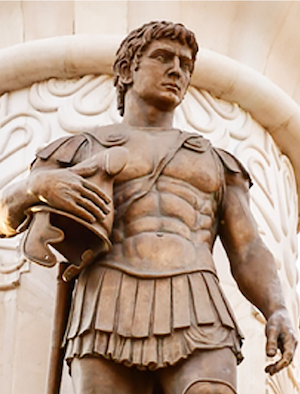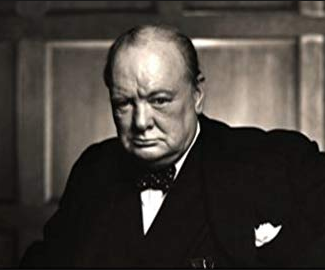 It was sometime in the spring of 323 BC when Alexander the Great – the “King of the World” – passed through the gates of ancient Babylon for the last time.
It was sometime in the spring of 323 BC when Alexander the Great – the “King of the World” – passed through the gates of ancient Babylon for the last time.
He had already conquered the city nearly a decade before. But his men were worn out from fighting in India and Persia, and Babylon was a secure place to give his army a much-needed rest.
They remained there for a few months, until, quite suddenly, Alexander became extremely ill on either the 10th or 11th of June and then died.
The cause of his death is unknown. Some say he was poisoned. Others blame malaria, typhoid fever, or complications from his battle wounds.
What is certain, however, is that he left behind no legitimate male heir, as his wife was still pregnant at the time of his death. So almost immediately a power struggle broke out as to who would succeed him. Continue reading

 Since my title is bound to inspire criticism that I’m a “God botherer,” I’ll preface what follows by stating that I wasn’t always the halo-adorned, floating-in-the-ether desert mystic (without the sand or heat) you behold today. I wasn’t raised with faith, and as a 12-year-old was an agnostic who’d say, “I’d never believe or disbelieve in anything there’s no proof of.” Later on I’d be rather dismissive of theists, actually, viewing them as God botherers myself, though we didn’t have that term or as many Richard Dawkins-like secularist warriors back then. I suppose we were, relatively speaking, handicapped in our exercise of supercilious anti-theism.
Since my title is bound to inspire criticism that I’m a “God botherer,” I’ll preface what follows by stating that I wasn’t always the halo-adorned, floating-in-the-ether desert mystic (without the sand or heat) you behold today. I wasn’t raised with faith, and as a 12-year-old was an agnostic who’d say, “I’d never believe or disbelieve in anything there’s no proof of.” Later on I’d be rather dismissive of theists, actually, viewing them as God botherers myself, though we didn’t have that term or as many Richard Dawkins-like secularist warriors back then. I suppose we were, relatively speaking, handicapped in our exercise of supercilious anti-theism. Walt Disney’s full-color animated cartoon, “Snow White,” premiered in 1937. It was a huge, groundbreaking success both at the box office and among critics. The movie garnered a special Academy Award and the Disney company was saved from bankruptcy. Disney went on to spend $4.5 million on a studio in Burbank California, where many more successes were created.
Walt Disney’s full-color animated cartoon, “Snow White,” premiered in 1937. It was a huge, groundbreaking success both at the box office and among critics. The movie garnered a special Academy Award and the Disney company was saved from bankruptcy. Disney went on to spend $4.5 million on a studio in Burbank California, where many more successes were created.




 October 29, 2022
October 29, 2022 It is said that Winston Churchill is the one who coined the phrase, “History is written by the victors.” That is probably due to the fact that he once joked, “For my part, I consider that it will be found much better by all parties to leave the past to history, especially as I propose to write that history myself.” (Speech to the House of Commons, Jan. 23, 1948) So, if Churchill did not originate that saying, who did?
It is said that Winston Churchill is the one who coined the phrase, “History is written by the victors.” That is probably due to the fact that he once joked, “For my part, I consider that it will be found much better by all parties to leave the past to history, especially as I propose to write that history myself.” (Speech to the House of Commons, Jan. 23, 1948) So, if Churchill did not originate that saying, who did? Anyone who wants to put America first needs to start by putting the Constitution first.
Anyone who wants to put America first needs to start by putting the Constitution first.